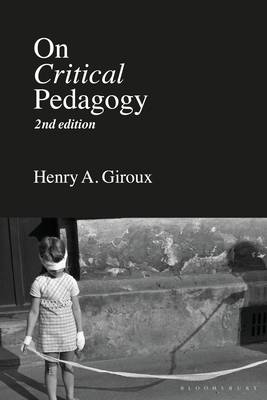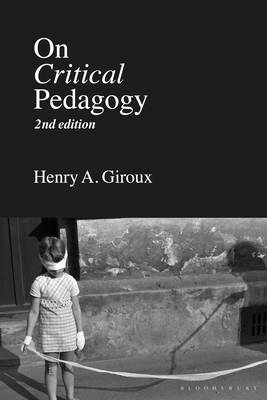
Bedankt voor het vertrouwen het afgelopen jaar! Om jou te bedanken bieden we GRATIS verzending (in België) aan op alles gedurende de hele maand januari.
- Afhalen na 1 uur in een winkel met voorraad
- In januari gratis thuislevering in België
- Ruim aanbod met 7 miljoen producten
Bedankt voor het vertrouwen het afgelopen jaar! Om jou te bedanken bieden we GRATIS verzending (in België) aan op alles gedurende de hele maand januari.
- Afhalen na 1 uur in een winkel met voorraad
- In januari gratis thuislevering in België
- Ruim aanbod met 7 miljoen producten
Zoeken
Omschrijving
Alongside Paulo Freire, Henry A. Giroux is widely considered to be the founding father of critical pedagogy. This classic work represents his best writing on critical pedagogy spanning the past 40 years. The 2nd edition includes four new chapters covering the rise of fascist culture in America and across the globe and the dictatorship of ignorance in the age of Trump and post-truth.
This impassioned work opens by discussing critical pedagogy in schools before extending the notion to the educational force of culture, politics, and society. Giroux analyses the increasingly empirical orientation of teaching, focusing on the culture of positivism and examines some of the major economic, social, and political forces undermining the promise of democratic schooling in both public and higher education. He argues against the tendency by both right wing and neo-liberal interests to reduce schooling to training, and students merely to customers. He points to the increasing attack on pubic and higher education by right-wing populists and the Trump administration in an age of growing authoritarianism. Giroux also considers the legacy of Freire and issues a fundamental challenge to educators, public intellectuals, and others who believe in the promise of radical democracy.
This impassioned work opens by discussing critical pedagogy in schools before extending the notion to the educational force of culture, politics, and society. Giroux analyses the increasingly empirical orientation of teaching, focusing on the culture of positivism and examines some of the major economic, social, and political forces undermining the promise of democratic schooling in both public and higher education. He argues against the tendency by both right wing and neo-liberal interests to reduce schooling to training, and students merely to customers. He points to the increasing attack on pubic and higher education by right-wing populists and the Trump administration in an age of growing authoritarianism. Giroux also considers the legacy of Freire and issues a fundamental challenge to educators, public intellectuals, and others who believe in the promise of radical democracy.
Specificaties
Betrokkenen
- Auteur(s):
- Uitgeverij:
Inhoud
- Aantal bladzijden:
- 280
- Taal:
- Engels
Eigenschappen
- Productcode (EAN):
- 9781350144972
- Verschijningsdatum:
- 19/03/2020
- Uitvoering:
- Paperback
- Formaat:
- Trade paperback (VS)
- Afmetingen:
- 152 mm x 228 mm
- Gewicht:
- 408 g

Alleen bij Standaard Boekhandel
+ 106 punten op je klantenkaart van Standaard Boekhandel
Beoordelingen
We publiceren alleen reviews die voldoen aan de voorwaarden voor reviews. Bekijk onze voorwaarden voor reviews.









